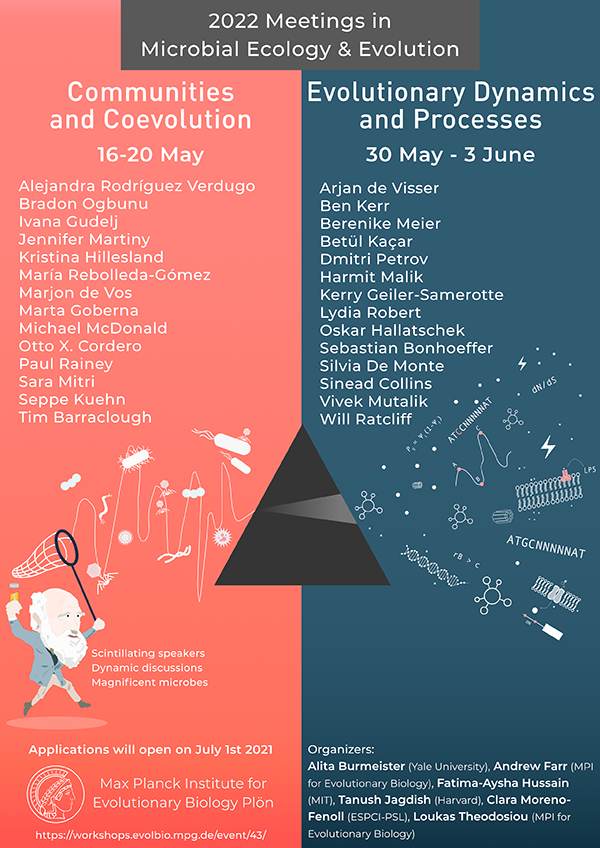Speaker
Description
Recent work from our lab showed that it is possible to use selfish genetic elements (SGEs) to link genes to community function. My project uses this same experimental approach and applies it to understand how horizontal gene transfer (HGT) might affect the establishment of the microbiome of the well-studied nematode Caenorhabditis elegans. To achieve this, I am experimentally evolving C. elegans in the presence of microbial communities. My initial communities are derived from garden compost and have been established in a laboratory environment consisting of a nitrogen-limited media and a single carbon source of cellulose paper. Communities are transferred bi-weekly and SGEs are pooled from multiple communities at times of transfer to enhance HGT. This enables the dynamic of horizontally acquired genes to be followed. This will be augmented by both assessment of the gut microbiome 16S species diversity and the sequencing of specific isolated genotypes, allowing to link HGT events to specific changes in the gut microbiome composition of nematodes. Fitness will be quantified by regular nematode counting and by competitive fitness assays at the end of the experiment. Fluorescently labelled gnotobiotic C. elegans will allow a direct link to be drawn between fitness changes and interaction with the microbiome without relying on host genetics. Overall, my work will provide insight into the evolution of host-microbe interactions and the connection between genes, and both microbial community and nematode function.

